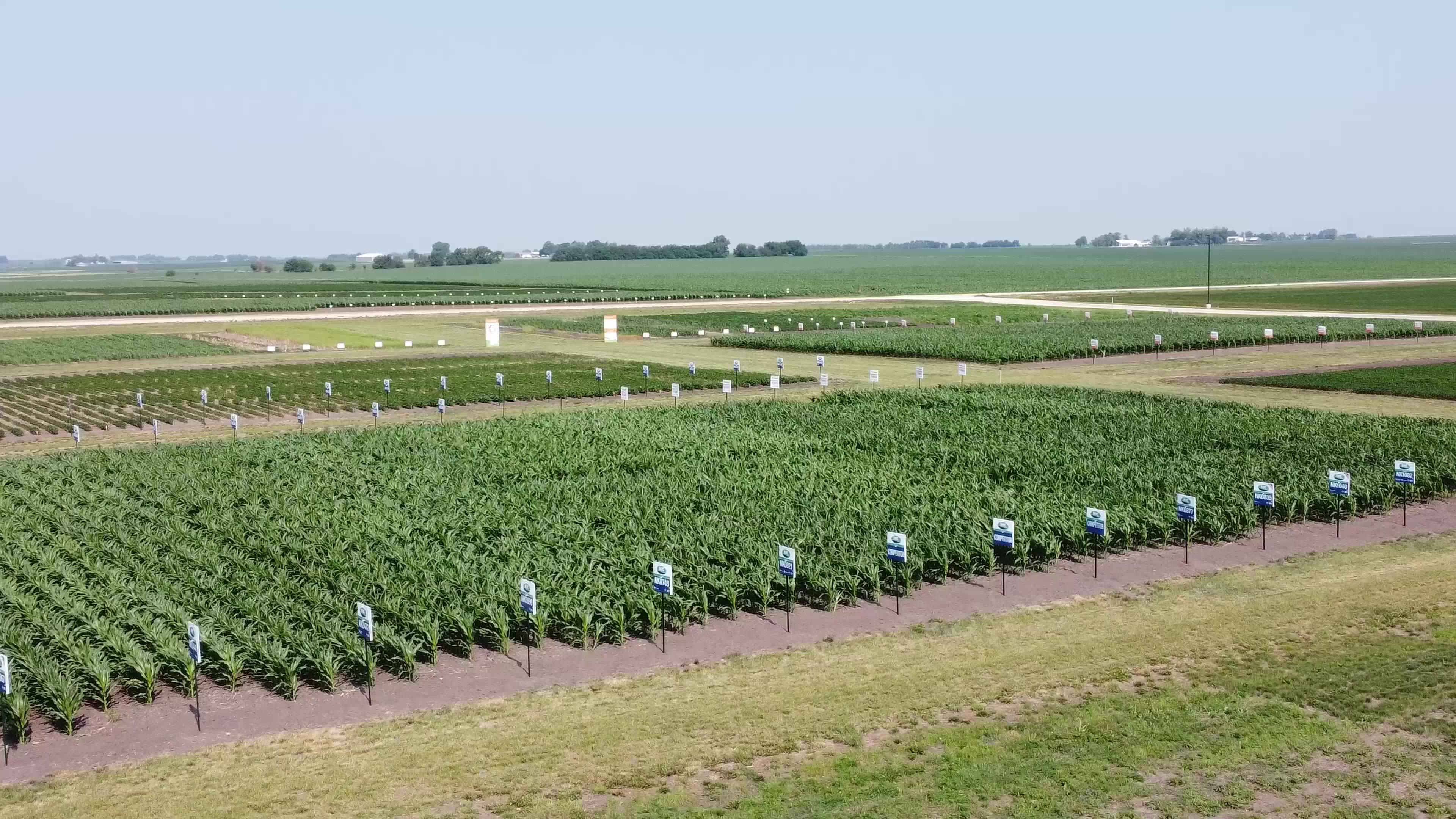Transforming corn’s impact
Improving efficiency and profitability for both growers and livestock producers

In the verdant expanse of America’s Midwest, a quiet transformation is taking place. At the heart of this progress is Enogen corn, a product of Syngenta’s commitment to agricultural innovation and sustainability.
Enogen corn, an in-seed innovation, is specifically designed to produce an enzyme that aids in breaking down corn starches into sugar more efficiently. This innovative corn variety has demonstrated broader impacts across the agricultural sector, touching the lives of farmers, consumers, and livestock.
Enogen corn has been transformative for the livestock industry since it was first used commercially in 2011. When used as feed, the enzyme in the corn helps livestock metabolize the grain more effectively, essential for achieving optimum nutrition for growth. In turn, this leads to more efficient beef and dairy operations that translate into higher return on investments for farm businesses. From the cattle feed yards out West to dairy farms in the North, farmers are experiencing these positive changes.
Feed efficiency to sustainability
Nestled in the heart of Wisconsin, Randy Koehler’s 600-acre farm in Chilton has been growing corn silage for the last decade. Last year, Koehler planted Syngenta’s Enogen corn on 400 acres of land. He has seen first-hand the changes his buyers have experienced.
“The dairy farmers who buy Enogen corn from my farm are getting higher quality of milk with reduced feed. This milk also has higher digestibility,” Koehler says.
Enogen corn contains a robust alpha-amylase enzyme that unlocks energy from each kernel, improving feed efficiency for livestock. This was verified by a study by the University of Nebraska, Lincoln, which found that a bushel of Enogen corn packs more energy than conventional corn and increases feed efficiency by 5 percent. These efficiency gains help producers lower input costs and enhance profit potential while reducing their farm's carbon footprint, making agriculture more sustainable.
A lifecycle analysis by the University of Arkansas underscores this point. For every 1,000 head of cattle, the environmental savings translate to taking 32 cars off the road, powering 21 homes, preserving 52 football fields worth of land, and conserving 9 Olympic swimming pools of water annually.
These substantial environmental benefits, along with the efficiency gains, are what makes this technology attractive for both farmers and large organizations alike.
Recently, McDonald’s USA, one of the largest fast food restaurant chains, and Lopez Foods, a multi-protein producer and supplier to McDonald’s, partnered with Syngenta to use Enogen corn as feed for beef production to enhance feed efficiency and help reduce GHG emissions per pound of meat produced, as part of their sustainability efforts.
When scaled across McDonald’s operations, climate-smart Enogen corn will help deliver reductions of more than 164,000 metric tons of CO2e annually — the equivalent of taking 35,000 cars off the road for a year.
Enogen corn contains a special enzyme that unlocks energy from each kernel, improving feed efficiency for livestock.
Enogen corn contains a special enzyme that unlocks energy from each kernel, improving feed efficiency for livestock.
Enogen corn contains a special enzyme that unlocks energy from each kernel, improving feed efficiency for livestock.
Enogen corn contains a special enzyme that unlocks energy from each kernel, improving feed efficiency for livestock.
Higher quality and affordability
“For livestock owners, the health and welfare of their animals are paramount. Enogen addresses these concerns by providing more digestible feed that enhances overall livestock performance,” says Chris Cook, Head of Sustainable Business Solutions at Syngenta. “With Enogen, we are assisting farmers in producing higher quality feed that leads to better performing herds,” he adds.
Enogen assists farmers in producing higher quality feed that leads to better performing herds.
Enogen assists farmers in producing higher quality feed that leads to better performing herds.
For farmers like Koehler, growing Enogen has another upside besides sustainability: higher yield.
“For my fields, Enogen corn has higher tonnage per acre, which is very important because I get paid by weight. This year, I am expecting yield to be 10 percent higher compared with normal corn. Using cover crops and no tilling has helped,” Koehler says, referring to regenerative agriculture techniques. These farming principles seek to boost farms' productivity, profitability and environmental sustainability while improving soil health over time.
For consumers, the benefits of Enogen corn are reflected not just in the quality of products, but also in their price. With increased efficiency in the agriculture and livestock supply chain, cost savings can be passed down to consumers, making food more affordable. In a world where food security and affordability continue to be pressing concerns, Enogen corn is contributing towards easing those burdens.
By using Enogen corn as feed for beef production, farmers can enhance feed efficiency and help reduce GHG emissions per pound of meat produced.
By using Enogen corn as feed for beef production, farmers can enhance feed efficiency and help reduce GHG emissions per pound of meat produced.
Moreover, the corn is entirely traceable. “Enogen is an easily identifiable technology, one that can be traced right from the farmer’s field to the ethanol plant, to the feedlot, and ultimately, to the consumer's table,” Cook says.
Holistic approach to sustainability
Alongside Syngenta's other innovative solutions such as Cropwise Sustainability — a digital tool that enables farmers to make smarter, data-driven business decisions — Enogen corn has the potential to play a significant role in advancing sustainable farming practices.
“Cropwise and Enogen are key components of our holistic approach to agriculture,” Cook explains. “They work in synergy to help farmers increase their productivity while reducing their environmental impact.”
Randy Koehler excitedly shows off his latest harvest of Enogen corn.
Randy Koehler excitedly shows off his latest harvest of Enogen corn.
Currently available to farmers in the United States, Enogen technology is poised for broader impact as Syngenta works to introduce it in other countries.
“From the agricultural fields to our dinner tables, Enogen corn initiates a ripple effect of positive change, enhancing the lives of all involved and aligning us more closely with the needs of livestock farmers. Beyond the present, the promise of Enogen corn extends toward a sustainable agricultural future,” Cook says.






